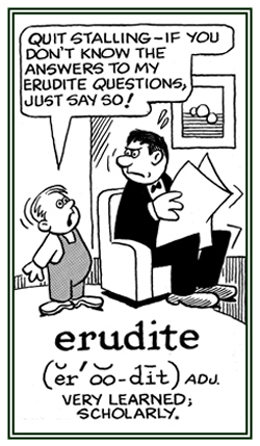-ite
(Greek: a suffix; one connected with, inhabitant of; also used to show chemicals, minerals, etc.)
batrachite
A fossil or stone in color resembling a frog.
biohermite
Any limestone formed of debris from a bioherm, often found in reef cores.
biomicrite
A limestone composed of skeletal remains in a matrix of carbonate mud.
1. Something made from different parts: This new law is a composite of previously suggested legislation over the years.
2. An image of a suspect's face which is created by a police artist or photographer, based on input from a witness or witnesses: Anita, the victim, described the thief and Christopher, the police artist, created a composite to be circulated among the police stations.
3. A structure or an entity made up of distinct elements; a mixture: The country road was a composite of gravel and packed stones.
4. A complex material; such as, wood or fiberglass, in which two or more distinct, structurally complementary substances; especially metals, ceramics, glasses, and polymers, are combined to produce structural or functional properties not present in any individual part or system: The composite used to make Becky's new bookcase looked just like fine mahogany.
5. A colloquial term for resin materials used in restorative dentistry: Doug's dentist, Dr. Jones, used a new composite to build up his chipped tooth.
2. An image of a suspect's face which is created by a police artist or photographer, based on input from a witness or witnesses: Anita, the victim, described the thief and Christopher, the police artist, created a composite to be circulated among the police stations.
3. A structure or an entity made up of distinct elements; a mixture: The country road was a composite of gravel and packed stones.
4. A complex material; such as, wood or fiberglass, in which two or more distinct, structurally complementary substances; especially metals, ceramics, glasses, and polymers, are combined to produce structural or functional properties not present in any individual part or system: The composite used to make Becky's new bookcase looked just like fine mahogany.
5. A colloquial term for resin materials used in restorative dentistry: Doug's dentist, Dr. Jones, used a new composite to build up his chipped tooth.
cosmopolite
1. A person who is cosmopolitan in his or her ideas, life, etc.; citizen of the world.
2. An animal or plant of worldwide distribution.
3. Someone who is at home everywhere; such as, a person of world-wide experience and travel.
4. A person without national ties or prejudices; international in outlook.
2. An animal or plant of worldwide distribution.
3. Someone who is at home everywhere; such as, a person of world-wide experience and travel.
4. A person without national ties or prejudices; international in outlook.
disunite (verb), disunites; disunited; disuniting
1. To create or to be a source of disagreement between different people or factions within a group.
2. To divide something into smaller parts or groups, or to become divided in this way.
2. To divide something into smaller parts or groups, or to become divided in this way.
erudite (ER yuh dight", ER uh dight") (adjective), more erudite, most erudite
1. Descriptive of someone who has great learning that has been gained from study and reading: After graduation from medical school, Kim had erudite knowledge which was very substantial and comprehensive.
2. Relating to a style of writing that shows a high level of scholarly or profound knowledge: At the library, Max checked out two very erudite books about philosophy.
3. Etymology: from the Latin eruditus, “learned, well-instructed”; from the past participle of the verb erudire, “to educate, train”; from the prefix ex–, “out, out of”, and the adjective rudis, “untaught, untrained”.

© ALL rights are reserved.

© ALL rights are reserved.

© ALL rights are reserved.
Go to this Word A Day Revisited Index
2. Relating to a style of writing that shows a high level of scholarly or profound knowledge: At the library, Max checked out two very erudite books about philosophy.
3. Etymology: from the Latin eruditus, “learned, well-instructed”; from the past participle of the verb erudire, “to educate, train”; from the prefix ex–, “out, out of”, and the adjective rudis, “untaught, untrained”.



Go to this Word A Day Revisited Index
so you can see more of Mickey Bach's cartoons.
A creature which lives entirely in the dark parts of underground enclosuress: Troglobites are cave-dwelling creatures that navigate without eyes, go for weeks or months without food, and are believed to be able to exist for more than a hundred years.
Here is some additional information about troglobites.
Showing page 2 out of 2 pages of 23 main-word entries or main-word-entry groups.

